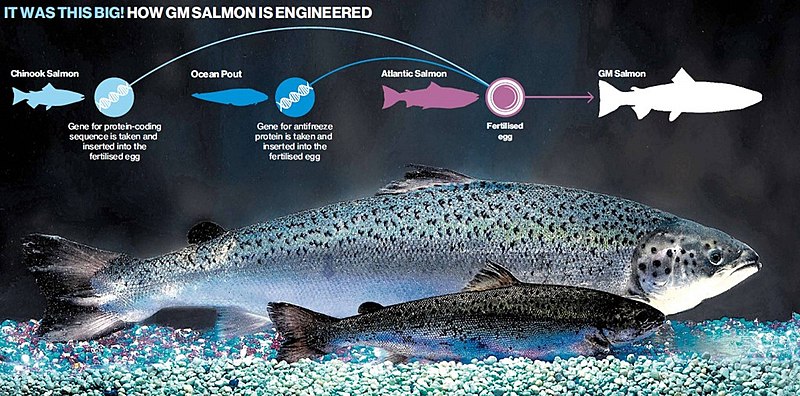
Yesterday U.S. regulators gave the green light to salmon genetically modified to grow about twice as fast as normal, but the company behind it may face legal challenges before the fish can be sold domestically.
LINK (via: Bozeman Daily Chronicle)
Patagonia has issued a statement on the FDA’s decision.
“Today’s FDA decision allowing genetically engineered salmon to end up on dinner plates throughout the U.S. demonstrates a continued arrogance that humans can dominate nature. For over 40 years, Patagonia has fought for wild places and the natural biodiversity they support. Scientists and watchdog groups indicate that genetically modified salmon pose serious risks to health, wild fish populations, local fishing economies and the environment — and labeling laws won’t go into effect until 2022, leaving citizens in the dark. Instead of opening the market to high-cost, risky technology like GMO salmon — particularly in this time of weakened government oversight — we need to reinvest in protecting our wild rivers and wild fish.”
Rose Marcario, CEO, Patagonia






So, we are back to, somehow very apt for the present era, Fake Salmon and Frankenfish. How powerful a lobby the aquaculture industry has. Only a week or so ago I was signing an international petition (still current) to be delivered to the Icelandic Goverment, strongly requesting that it reconsider its permitting salmon farming in its coastal waters – I remember what happened to one of its best rivers, the Laxa-i-Kjos, 20-odd years ago, you see: a break-out from salmon cages in the Hvalfordur bay at its mouth, salmon fishing in the river ruined by returning Zoo Fish for several years afterwards and, far more importantly, the river’s fantastic, return in nnumbers and breed like hell, wild fish gene pool contaminated by creatures that, well, simply “aren’t up to it” in the wild (otr in a cage, for that matter).
Then there was the recent story, thankfully a happy one so far, of foreign salmon-farming interests wishing to place their salmon pens in the Beagle Channel on the south coast of Tierra del Fuego – the Argentine Government, the last time I read about it, was saying “No!”. Let’s hope that it continues to do so.
Strikes me that many will only value what we had in true wild salmonids when they’re all gone. What a loud and pitiful, “closing the stable door after the horse has bolted” noise such sorts will make then.